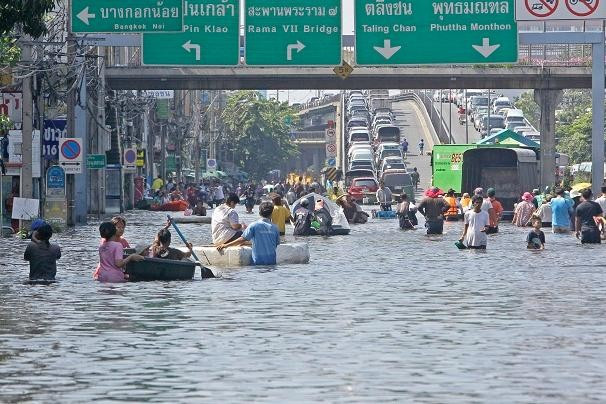
The report projects that by 2050, heat-related labour productivity losses will emerge as the most significant economic threat, affecting workers across all sectors nationwide.
In Bangkok, each 1°C temperature rise could generate costs of 85-123 billion THB (2.62–3.79 billion USD) related to heat deaths, productivity losses, and increased energy consumption-equivalent to 1.6-2% of the capital's GDP.
Coastal erosion already affects 30% of Thailand's coastline and could cost the tourism sector 1 billion USD annually by the mid-2040s without intervention.
Meanwhile, water scarcity in key agricultural regions and industrial zones, including the Eastern Economic Corridor, will worsen significantly.
The report estimates that 219 billion USD in climate-related investments will be needed over the next 25 years—equivalent to 2.4% of cumulative GDP—but the returns substantially exceed the costs.
Investments in flood mitigation, water security, coastal protection, and cooling infrastructure could raise annual GDP by 2-3% by 2040 and 4-5% by 2050 compared with business-as-usual scenarios.
Thailand also faces transition risks if it fails to match the decarbonisation efforts of trading partners.
The report notes that 78% of multinational corporations plan to exclude high-carbon suppliers from their supply chains from 2025 onwards, whilst initiatives such as the EU's Carbon Border Adjustment Mechanism could increasingly affect Thai exports.
However, accelerated decarbonisation could raise Thailand's GDP by 2.5% by 2050 compared with baseline projections.
The electricity sector's reform is identified as a top priority, aimed at promoting competition in renewable energy, modernising the power grid, and enhancing regional integration. The shift to renewable energy could eventually reduce electricity costs while avoiding more than 15,000 premature deaths annually by 2050 through improved air quality.
This report was released by the World Bank one year ahead of Thailand hosting the IMF–World Bank Group Annual Meetings in October 2026.
Thailand ranks among the ten most flood-prone countries globally, with the Chao Phraya river basin - home to 40% of the population and generating 66% of GDP - particularly vulnerable.
The devastating floods in 2011, which caused damage equivalent to 12.6% of the country's GDP, could recur with increasing frequency under climate change scenarios./.
VNA
Source: https://en.vietnamplus.vn/thailand-risks-losing-14-of-gdp-by-2050-due-to-climate-change-post329885.vnp
 Cambodia launches national campaigns to prevent school dropouts
Cambodia launches national campaigns to prevent school dropouts



